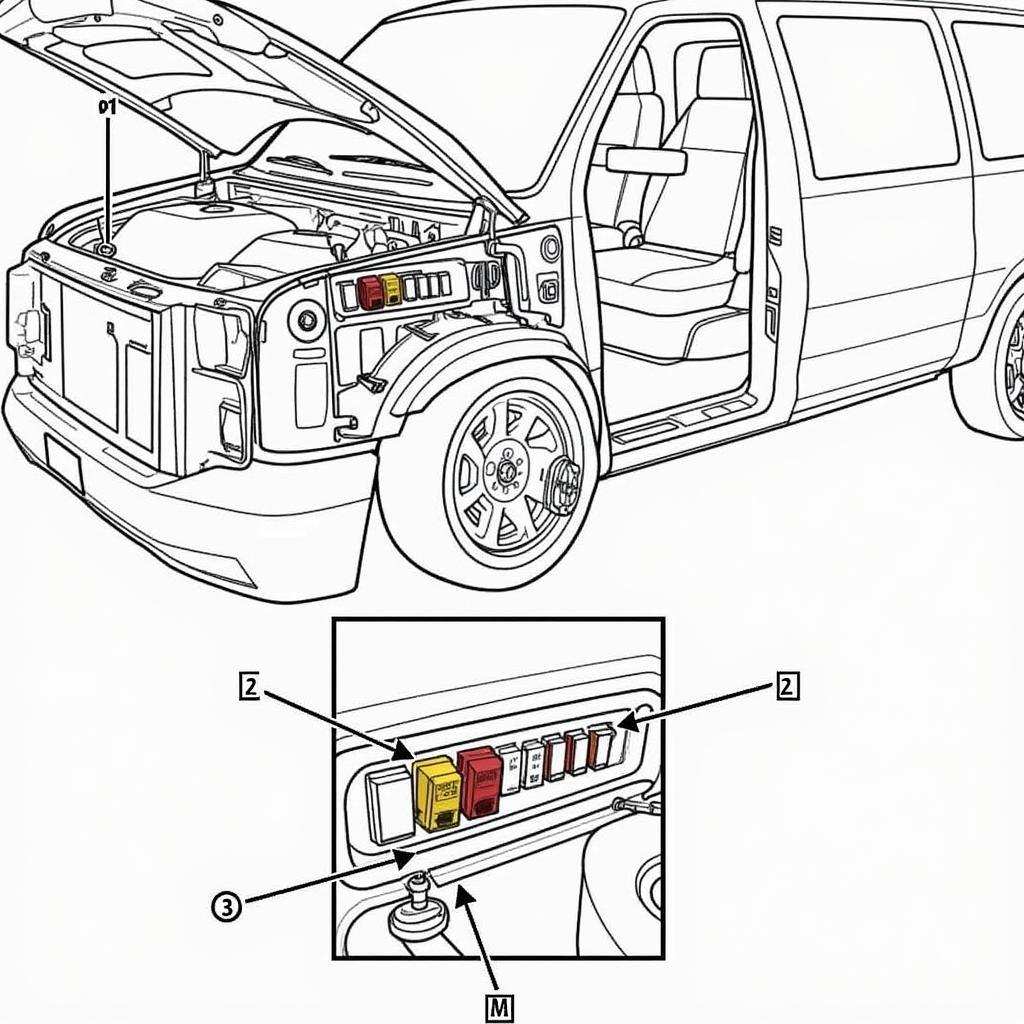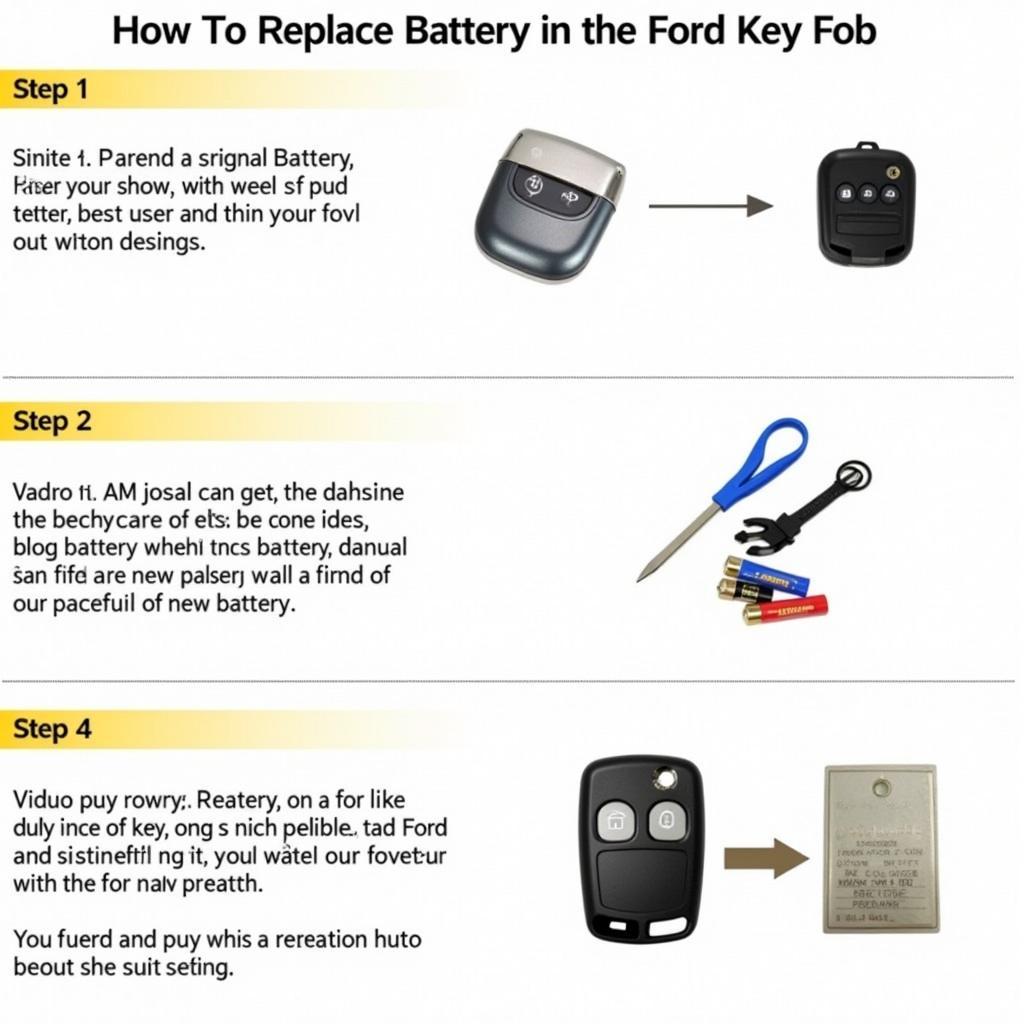The ABS brake warning light glaring at you from your ’04 Astro’s dashboard can be a real nuisance. This article will guide you through the process of diagnosing and potentially fixing the issue, helping you understand how to disconnect that pesky ABS light and, more importantly, address the underlying problem. We’ll cover everything from simple checks to more advanced diagnostics, empowering you to take control and get your Astro’s braking system back in top shape.
Understanding Your Astro’s ABS System
The Anti-lock Braking System (ABS) is a crucial safety feature designed to prevent wheel lockup during hard braking. It allows you to maintain steering control while stopping suddenly, especially on slippery surfaces. When the ABS light illuminates, it signals a potential issue within the system, requiring investigation. Ignoring this light could compromise your safety.
Common Causes of an ABS Warning Light
Several factors can trigger the ABS warning light on your ’04 Astro. These range from simple issues like a blown fuse or low brake fluid to more complex problems with the ABS module or wheel speed sensors. Understanding these potential causes is the first step towards a solution.
Low Brake Fluid
One of the most common culprits is low brake fluid. The ABS system relies on adequate fluid pressure to function correctly. Check your brake fluid reservoir and top it off if necessary. If the fluid level drops quickly, it could indicate a leak in the brake lines, which requires immediate attention.
Faulty Wheel Speed Sensors
The wheel speed sensors are vital components of the ABS. They monitor the rotational speed of each wheel and relay this information to the ABS module. A malfunctioning sensor can cause inaccurate readings and trigger the warning light. These sensors are susceptible to damage from road debris and corrosion.
ABS Module Issues
The ABS module is the brain of the system. It processes the information from the wheel speed sensors and controls the ABS function. A faulty module can cause various problems, including the illumination of the warning light. Diagnosing module problems typically requires specialized diagnostic tools.
Blown Fuses
A blown fuse can disrupt power to the ABS system, causing the warning light to come on. Check your Astro’s fuse box and replace any blown fuses related to the ABS. This is a simple check that can often resolve the issue quickly.
 04 Astro Van ABS Fuse Box Location and Identification
04 Astro Van ABS Fuse Box Location and Identification
Diagnosing the Problem: How to Pinpoint the Issue
Diagnosing the ABS issue requires a systematic approach. Start with the simple checks, like brake fluid and fuses. If these don’t resolve the issue, you’ll likely need a diagnostic scanner to read the ABS trouble codes.
Using an OBD-II Scanner
An OBD-II scanner is a valuable tool for diagnosing car problems, including ABS issues. It allows you to retrieve specific trouble codes stored in the vehicle’s computer. These codes provide valuable insights into the nature of the problem and help pinpoint the faulty component.
Checking Wheel Speed Sensors
Visually inspect the wheel speed sensors for damage or corrosion. You can also use a multimeter to test the sensors’ resistance. This requires some technical knowledge, but online resources can provide guidance.
Professional Diagnosis
If you’re uncomfortable working on your vehicle’s braking system or can’t identify the issue, it’s crucial to seek professional help. A qualified mechanic with experience in ABS systems can diagnose and repair the problem effectively.
Disconnecting the ABS Light: The Right and Wrong Ways
While disconnecting the ABS light might seem tempting, it’s generally not recommended. The light serves as a crucial warning signal, and simply disconnecting it won’t fix the underlying problem. Addressing the root cause is essential for your safety.
“Disconnecting the ABS light without fixing the problem is like silencing a fire alarm without putting out the fire,” says John Davis, a seasoned automotive electrical engineer with over 20 years of experience. “You’re masking the symptom, not solving the issue.”
The Correct Approach: Fixing the Problem
The correct approach is to diagnose and repair the underlying issue causing the ABS light to illuminate. This might involve replacing a faulty sensor, repairing a leak, or addressing a problem with the ABS module.
The Incorrect Approach: Simply Disconnecting the Light
Simply disconnecting the ABS light won’t address the problem. It’s like putting a bandage on a broken bone – it might hide the issue temporarily, but it won’t fix it. Moreover, ignoring the warning light could lead to more severe problems down the line.
“Addressing the root cause is paramount for maintaining a safe and reliable braking system,” adds Davis. “A properly functioning ABS is crucial for preventing accidents, especially in challenging driving conditions.”
Conclusion
The ABS warning light on your ’04 Astro should never be ignored. Understanding the potential causes, using diagnostic tools, and addressing the root issue are crucial for maintaining a safe and reliable braking system. While disconnecting the ABS brake warning light on dashboard 04astro might seem like a quick fix, it’s essential to remember that this approach is never the right solution. Prioritize safety and get your Astro’s braking system back to optimal performance by fixing the underlying problem.
FAQ
- What does the ABS light mean? The ABS light indicates a potential problem with your Anti-lock Braking System.
- Can I drive with the ABS light on? You can still drive, but your ABS might not function correctly, compromising your safety, especially in slippery conditions.
- How much does it cost to fix an ABS problem? The cost varies depending on the specific issue. A simple fuse replacement might cost a few dollars, while a new ABS module could be several hundred.
- How do I check my brake fluid level? Locate the brake fluid reservoir under the hood and check the fluid level against the minimum and maximum markings.
- Do I need a special tool to read ABS codes? Yes, you’ll typically need an OBD-II scanner capable of reading ABS trouble codes.
- Can I fix an ABS problem myself? Simple tasks like checking fuses and fluid levels can be done DIY, but more complex repairs require professional expertise.
- What if I can’t find the problem after checking the basics? Consult a qualified mechanic specializing in ABS systems for professional diagnosis and repair.


